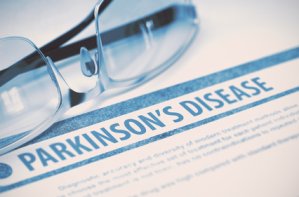afterLoad (456.22KB) (5.56ms)
afterInitialise (1.27MB) (47.32ms)
afterRoute (870.38KB) (33.28ms)
beforeRenderComponent com_tags (20.52KB) (252μs)
afterRenderComponent com_tags (1.24MB) (113ms)
afterDispatch (27.38KB) (8.79ms)
beforeRenderRawModule mod_articles_category (READ MORE...) (388.12KB) (21.74ms)
Before Access::preloadComponents (all components) (56.7KB) (472μs)
After Access::preloadComponents (all components) (107.42KB) (8.23ms)
Before Access::getAssetRules (id:8 name:com_content) (840B) (16μs)
After Access::getAssetRules (id:8 name:com_content) (7.05KB) (39μs)
afterRenderRawModule mod_articles_category (READ MORE...) (5.7KB) (219ms)
beforeRenderRawModule mod_tags_popular (Search) (4.81KB) (30μs)
afterRenderRawModule mod_tags_popular (Search) (1.87KB) (85.48ms)
beforeRenderRawModule mod_custom (Remember to download Heart Healthy Seniors) (816B) (28μs)
afterRenderRawModule mod_custom (Remember to download Heart Healthy Seniors) (4.86KB) (1.25ms)
beforeRenderRawModule mod_custom (Get additionel and more detailed knowledge ) (752B) (17μs)
afterRenderRawModule mod_custom (Get additionel and more detailed knowledge ) (1.67KB) (31μs)
beforeRenderRawModule mod_custom (BOOST YOUR IMMUNE DEFENSE) (608B) (11μs)
afterRenderRawModule mod_custom (BOOST YOUR IMMUNE DEFENSE) (928B) (23μs)
beforeRenderRawModule mod_custom (Are you taking supplements) (736B) (9μs)
afterRenderRawModule mod_custom (Are you taking supplements) (1.03KB) (19μs)
beforeRenderRawModule mod_custom (Antiaging) (720B) (9μs)
afterRenderRawModule mod_custom (Antiaging) (1.02KB) (18μs)
beforeRenderRawModule mod_custom (Exercise) (720B) (9μs)
afterRenderRawModule mod_custom (Exercise) (1.02KB) (19μs)
beforeRenderRawModule mod_custom (Check this before you buy a Q10 product) (752B) (9μs)
afterRenderRawModule mod_custom (Check this before you buy a Q10 product) (944B) (18μs)
beforeRenderRawModule mod_custom (Chronic fatigue tied Alan to his bed but Q10 capsules saved him:) (245.53KB) (3.96ms)
afterRenderRawModule mod_custom (Chronic fatigue tied Alan to his bed but Q10 capsules saved him:) (960B) (47μs)
beforeRenderModule mod_custom (Chronic fatigue tied Alan to his bed but Q10 capsules saved him:) (768B) (5μs)
afterRenderModule mod_custom (Chronic fatigue tied Alan to his bed but Q10 capsules saved him:) (1.3KB) (59μs)
beforeRenderRawModule mod_custom (Cholesterol-lowering without side effects:) (368B) (12μs)
afterRenderRawModule mod_custom (Cholesterol-lowering without side effects:) (2.19KB) (25μs)
beforeRenderModule mod_custom (Cholesterol-lowering without side effects:) (752B) (2μs)
afterRenderModule mod_custom (Cholesterol-lowering without side effects:) (1.28KB) (30μs)
beforeRenderModule mod_articles_category (READ MORE...) (21.32KB) (345μs)
afterRenderModule mod_articles_category (READ MORE...) (1.25KB) (40μs)
beforeRenderModule mod_tags_popular (Search) (5.17KB) (14μs)
afterRenderModule mod_tags_popular (Search) (1.27KB) (25μs)
beforeRenderModule mod_custom (Remember to download Heart Healthy Seniors) (1.17KB) (12μs)
afterRenderModule mod_custom (Remember to download Heart Healthy Seniors) (1.3KB) (22μs)
beforeRenderModule mod_custom (Get additionel and more detailed knowledge ) (368B) (9μs)
afterRenderModule mod_custom (Get additionel and more detailed knowledge ) (1.3KB) (20μs)
beforeRenderModule mod_custom (BOOST YOUR IMMUNE DEFENSE) (224B) (9μs)
afterRenderModule mod_custom (BOOST YOUR IMMUNE DEFENSE) (1.28KB) (20μs)
beforeRenderModule mod_custom (Are you taking supplements) (352B) (8μs)
afterRenderModule mod_custom (Are you taking supplements) (1.28KB) (20μs)
beforeRenderModule mod_custom (Antiaging) (336B) (9μs)
afterRenderModule mod_custom (Antiaging) (1.27KB) (20μs)
beforeRenderModule mod_custom (Exercise) (336B) (8μs)
afterRenderModule mod_custom (Exercise) (1.25KB) (2.06ms)
beforeRenderModule mod_custom (Check this before you buy a Q10 product) (352B) (22μs)
afterRenderModule mod_custom (Check this before you buy a Q10 product) (1.28KB) (41μs)
beforeRenderRawModule mod_menu (Main menu-US) (20.94KB) (605μs)
afterRenderRawModule mod_menu (Main menu-US) (153.91KB) (2.65ms)
beforeRenderModule mod_menu (Main menu-US) (720B) (5μs)
afterRenderModule mod_menu (Main menu-US) (4.36KB) (57μs)
beforeRenderRawModule mod_languages (Sprogskift) (3.44KB) (19μs)
afterRenderRawModule mod_languages (Sprogskift) (26.8KB) (2.8ms)
beforeRenderModule mod_languages (Sprogskift) (720B) (6μs)
afterRenderModule mod_languages (Sprogskift) (5.31KB) (21μs)
beforeRenderRawModule mod_finder () (6.34KB) (11μs)
afterRenderRawModule mod_finder () (214.16KB) (9.17ms)
beforeRenderModule mod_finder () (704B) (5μs)
afterRenderModule mod_finder () (5.79KB) (34μs)
beforeRenderRawModule mod_custom () (6.62KB) (142μs)
afterRenderRawModule mod_custom () (22.64KB) (970μs)
beforeRenderModule mod_custom () (704B) (6μs)
afterRenderModule mod_custom () (1.23KB) (48μs)
beforeRenderRawModule mod_menu (Main menu-US) (5.07KB) (101μs)
afterRenderRawModule mod_menu (Main menu-US) (5.8KB) (2.4ms)
beforeRenderModule mod_menu (Main menu-US) (720B) (4μs)
afterRenderModule mod_menu (Main menu-US) (1.25KB) (50μs)
beforeRenderRawModule mod_languages (Sprogskift Mobil) (912B) (19μs)
afterRenderRawModule mod_languages (Sprogskift Mobil) (3.89KB) (654μs)
beforeRenderModule mod_languages (Sprogskift Mobil) (720B) (3μs)
afterRenderModule mod_languages (Sprogskift Mobil) (1.27KB) (31μs)
beforeRenderRawModule mod_finder () (2.3KB) (9μs)
afterRenderRawModule mod_finder () (6.29KB) (2.52ms)
beforeRenderModule mod_finder () (704B) (4μs)
afterRenderModule mod_finder () (1.23KB) (45μs)
beforeRenderRawModule mod_custom () (8.66KB) (179μs)
afterRenderRawModule mod_custom () (904B) (137μs)
beforeRenderModule mod_custom () (704B) (3μs)
afterRenderModule mod_custom () (2.43KB) (25μs)
beforeRenderRawModule mod_custom () (688B) (80μs)
afterRenderRawModule mod_custom () (896B) (1.11ms)
beforeRenderModule mod_custom () (704B) (3μs)
afterRenderModule mod_custom () (2.71KB) (26μs)
afterRender (225.71KB) (9.69ms)
| 1 x afterRenderRawModule mod_articles_category (READ MORE...) (5.7KB) (37.07%) | 219.13ms |
| 1 x afterRenderComponent com_tags (1.24MB) (19.18%) | 113.36ms |
| 1 x afterRenderRawModule mod_tags_popular (Search) (1.87KB) (14.46%) | 85.48ms |
| 1 x afterInitialise (1.27MB) (8%) | 47.32ms |
| 1 x afterRoute (870.38KB) (5.63%) | 33.28ms |
| 1 x beforeRenderRawModule mod_articles_category (READ MORE...) (388.12KB) (3.68%) | 21.74ms |
| 1 x afterRender (225.71KB) (1.64%) | 9.69ms |
| 1 x afterRenderRawModule mod_finder () (214.16KB) (1.55%) | 9.17ms |
| 1 x afterDispatch (27.38KB) (1.49%) | 8.79ms |
| 1 x After Access::preloadComponents (all components) (107.42KB) (1.39%) | 8.23ms |
| 1 x afterLoad (456.22KB) (0.94%) | 5.56ms |
| 1 x beforeRenderRawModule mod_custom (Chronic fatigue tied Alan to his bed but Q10 capsules saved him:) (245.53KB) (0.67%) | 3.96ms |
| 1 x afterRenderRawModule mod_languages (Sprogskift) (26.8KB) (0.47%) | 2.80ms |
| 1 x afterRenderRawModule mod_menu (Main menu-US) (153.91KB) (0.45%) | 2.65ms |
| 1 x afterRenderRawModule mod_finder () (6.29KB) (0.43%) | 2.52ms |
| 1 x afterRenderRawModule mod_menu (Main menu-US) (5.8KB) (0.41%) | 2.40ms |
| 1 x afterRenderModule mod_custom (Exercise) (1.25KB) (0.35%) | 2.06ms |
| 1 x afterRenderRawModule mod_custom (Remember to download Heart Healthy Seniors) (4.86KB) (0.21%) | 1.25ms |
| 1 x afterRenderRawModule mod_custom () (896B) (0.19%) | 1.11ms |
| 1 x afterRenderRawModule mod_custom () (22.64KB) (0.16%) | 970μs |
| 1 x afterRenderRawModule mod_languages (Sprogskift Mobil) (3.89KB) (0.11%) | 654μs |
| 1 x beforeRenderRawModule mod_menu (Main menu-US) (20.94KB) (0.1%) | 605μs |
| 1 x Before Access::preloadComponents (all components) (56.7KB) (0.08%) | 472μs |
| 1 x beforeRenderModule mod_articles_category (READ MORE...) (21.32KB) (0.06%) | 345μs |
| 1 x beforeRenderComponent com_tags (20.52KB) (0.04%) | 252μs |
| 1 x beforeRenderRawModule mod_custom () (8.66KB) (0.03%) | 179μs |
| 1 x beforeRenderRawModule mod_custom () (6.62KB) (0.02%) | 142μs |
| 1 x afterRenderRawModule mod_custom () (904B) (0.02%) | 137μs |
| 1 x beforeRenderRawModule mod_menu (Main menu-US) (5.07KB) (0.02%) | 101μs |
| 1 x beforeRenderRawModule mod_custom () (688B) (0.01%) | 80μs |
| 1 x afterRenderModule mod_custom (Chronic fatigue tied Alan to his bed but Q10 capsules saved him:) (1.3KB) (0.01%) | 59μs |
| 1 x afterRenderModule mod_menu (Main menu-US) (4.36KB) (0.01%) | 57μs |
| 1 x afterRenderModule mod_menu (Main menu-US) (1.25KB) (0.01%) | 50μs |
| 1 x afterRenderModule mod_custom () (1.23KB) (0.01%) | 48μs |
| 1 x afterRenderRawModule mod_custom (Chronic fatigue tied Alan to his bed but Q10 capsules saved him:) (960B) (0.01%) | 47μs |
| 1 x afterRenderModule mod_finder () (1.23KB) (0.01%) | 45μs |
| 1 x afterRenderModule mod_custom (Check this before you buy a Q10 product) (1.28KB) (0.01%) | 41μs |
| 1 x afterRenderModule mod_articles_category (READ MORE...) (1.25KB) (0.01%) | 40μs |
| 1 x After Access::getAssetRules (id:8 name:com_content) (7.05KB) (0.01%) | 39μs |
| 1 x afterRenderModule mod_finder () (5.79KB) (0.01%) | 34μs |
| 1 x afterRenderRawModule mod_custom (Get additionel and more detailed knowledge ) (1.67KB) (0.01%) | 31μs |
| 1 x afterRenderModule mod_languages (Sprogskift Mobil) (1.27KB) (0.01%) | 31μs |
| 1 x beforeRenderRawModule mod_tags_popular (Search) (4.81KB) (0.01%) | 30μs |
| 1 x afterRenderModule mod_custom (Cholesterol-lowering without side effects:) (1.28KB) (0.01%) | 30μs |
| 1 x beforeRenderRawModule mod_custom (Remember to download Heart Healthy Seniors) (816B) (0%) | 28μs |
| 1 x afterRenderModule mod_custom () (2.71KB) (0%) | 26μs |
| 1 x afterRenderRawModule mod_custom (Cholesterol-lowering without side effects:) (2.19KB) (0%) | 25μs |
| 1 x afterRenderModule mod_tags_popular (Search) (1.27KB) (0%) | 25μs |
| 1 x afterRenderModule mod_custom () (2.43KB) (0%) | 25μs |
| 1 x afterRenderRawModule mod_custom (BOOST YOUR IMMUNE DEFENSE) (928B) (0%) | 23μs |
| 1 x afterRenderModule mod_custom (Remember to download Heart Healthy Seniors) (1.3KB) (0%) | 22μs |
| 1 x beforeRenderModule mod_custom (Check this before you buy a Q10 product) (352B) (0%) | 22μs |
| 1 x afterRenderModule mod_languages (Sprogskift) (5.31KB) (0%) | 21μs |
| 1 x afterRenderModule mod_custom (BOOST YOUR IMMUNE DEFENSE) (1.28KB) (0%) | 20μs |
| 1 x afterRenderModule mod_custom (Are you taking supplements) (1.28KB) (0%) | 20μs |
| 1 x afterRenderModule mod_custom (Antiaging) (1.27KB) (0%) | 20μs |
| 1 x afterRenderModule mod_custom (Get additionel and more detailed knowledge ) (1.3KB) (0%) | 20μs |
| 1 x afterRenderRawModule mod_custom (Are you taking supplements) (1.03KB) (0%) | 19μs |
| 1 x beforeRenderRawModule mod_languages (Sprogskift) (3.44KB) (0%) | 19μs |
| 1 x beforeRenderRawModule mod_languages (Sprogskift Mobil) (912B) (0%) | 19μs |
| 1 x afterRenderRawModule mod_custom (Exercise) (1.02KB) (0%) | 19μs |
| 1 x afterRenderRawModule mod_custom (Antiaging) (1.02KB) (0%) | 18μs |
| 1 x afterRenderRawModule mod_custom (Check this before you buy a Q10 product) (944B) (0%) | 18μs |
| 1 x beforeRenderRawModule mod_custom (Get additionel and more detailed knowledge ) (752B) (0%) | 17μs |
| 1 x Before Access::getAssetRules (id:8 name:com_content) (840B) (0%) | 16μs |
| 1 x beforeRenderModule mod_tags_popular (Search) (5.17KB) (0%) | 14μs |
| 1 x beforeRenderRawModule mod_custom (Cholesterol-lowering without side effects:) (368B) (0%) | 12μs |
| 1 x beforeRenderModule mod_custom (Remember to download Heart Healthy Seniors) (1.17KB) (0%) | 12μs |
| 3 x beforeRenderModule mod_custom () (704B) (0%) | 12μs |
| 1 x beforeRenderRawModule mod_custom (BOOST YOUR IMMUNE DEFENSE) (608B) (0%) | 11μs |
| 1 x beforeRenderRawModule mod_finder () (6.34KB) (0%) | 11μs |
| 1 x beforeRenderRawModule mod_custom (Are you taking supplements) (736B) (0%) | 9μs |
| 1 x beforeRenderRawModule mod_custom (Exercise) (720B) (0%) | 9μs |
| 1 x beforeRenderRawModule mod_custom (Check this before you buy a Q10 product) (752B) (0%) | 9μs |
| 1 x beforeRenderModule mod_custom (Get additionel and more detailed knowledge ) (368B) (0%) | 9μs |
| 1 x beforeRenderModule mod_custom (BOOST YOUR IMMUNE DEFENSE) (224B) (0%) | 9μs |
| 2 x beforeRenderModule mod_menu (Main menu-US) (720B) (0%) | 9μs |
| 2 x beforeRenderModule mod_finder () (704B) (0%) | 9μs |
| 1 x beforeRenderRawModule mod_finder () (2.3KB) (0%) | 9μs |
| 1 x beforeRenderRawModule mod_custom (Antiaging) (720B) (0%) | 9μs |
| 1 x beforeRenderModule mod_custom (Antiaging) (336B) (0%) | 9μs |
| 1 x beforeRenderModule mod_custom (Are you taking supplements) (352B) (0%) | 8μs |
| 1 x beforeRenderModule mod_custom (Exercise) (336B) (0%) | 8μs |
| 1 x beforeRenderModule mod_languages (Sprogskift) (720B) (0%) | 6μs |
| 1 x beforeRenderModule mod_custom (Chronic fatigue tied Alan to his bed but Q10 capsules saved him:) (768B) (0%) | 5μs |
| 1 x beforeRenderModule mod_languages (Sprogskift Mobil) (720B) (0%) | 3μs |
| 1 x beforeRenderModule mod_custom (Cholesterol-lowering without side effects:) (752B) (0%) | 2μs |
 Age-related loss of muscle mass is a natural process and may result in increased feebleness and even disability. Strength training and diet play a major role, and older people need more protein, especially an essential amino acid called leucine. In addition, supplements of vitamin D, omega-3 fatty acids, and probiotics can have a positive impact on muscle mass and muscle strength, according to a review article that is published in Frontiers in Nutrition.
Age-related loss of muscle mass is a natural process and may result in increased feebleness and even disability. Strength training and diet play a major role, and older people need more protein, especially an essential amino acid called leucine. In addition, supplements of vitamin D, omega-3 fatty acids, and probiotics can have a positive impact on muscle mass and muscle strength, according to a review article that is published in Frontiers in Nutrition.







 A new study shows that patients with early stages of Parkinson’s disease may benefit from getting more vitamin B3 from their diet or from supplements. This is because the nutrient supports cellular energy turnover and helps repair damaged nerve cell DNA. It is vital to get sufficient amounts of vitamin B3 as part of the prevention of the much-dreaded disease.
A new study shows that patients with early stages of Parkinson’s disease may benefit from getting more vitamin B3 from their diet or from supplements. This is because the nutrient supports cellular energy turnover and helps repair damaged nerve cell DNA. It is vital to get sufficient amounts of vitamin B3 as part of the prevention of the much-dreaded disease. Older people with a high intake of vitamin C appear to have healthier skeletal muscle than those with lower intakes, according to a new study from the University of East Anglia in England. This is an important discovery because our natural loss of muscle mass begins in our forties and starts to accelerate after we pass the age of 65 years. The phenomenon is known as sarcopenia and is one of the main reasons why older people become increasingly fragile and susceptible to disease. The authors behind the study believe that it is particularly important for middle-aged and older people to get plenty of vitamin C from their diets or by taking supplements. As a bonus effect, vitamin C also protects against infections and cardiovascular diseases, which also typically affect seniors.
Older people with a high intake of vitamin C appear to have healthier skeletal muscle than those with lower intakes, according to a new study from the University of East Anglia in England. This is an important discovery because our natural loss of muscle mass begins in our forties and starts to accelerate after we pass the age of 65 years. The phenomenon is known as sarcopenia and is one of the main reasons why older people become increasingly fragile and susceptible to disease. The authors behind the study believe that it is particularly important for middle-aged and older people to get plenty of vitamin C from their diets or by taking supplements. As a bonus effect, vitamin C also protects against infections and cardiovascular diseases, which also typically affect seniors. Vitamin D is essential for muscle function and normal muscle size, according to a new study that is carried out by scientists at Westmead Institute for Medical Research in Sidney. Lack of vitamin D may result in impaired muscle function, including such problems as poor physical fitness level, muscle tension and loss of muscle mass.
Vitamin D is essential for muscle function and normal muscle size, according to a new study that is carried out by scientists at Westmead Institute for Medical Research in Sidney. Lack of vitamin D may result in impaired muscle function, including such problems as poor physical fitness level, muscle tension and loss of muscle mass. "After about one week of taking the Q10 supplement I could feel a huge difference," says 23-year old Alan Piccini, who has been suffering from extreme fatigue and muscle aches ever since he was a child.
"After about one week of taking the Q10 supplement I could feel a huge difference," says 23-year old Alan Piccini, who has been suffering from extreme fatigue and muscle aches ever since he was a child. “Taking capsules with co-enzyme Q10 has freed me of the severe side effects of my cholesterol lowering medicine,” Mrs Franken explains.
“Taking capsules with co-enzyme Q10 has freed me of the severe side effects of my cholesterol lowering medicine,” Mrs Franken explains.